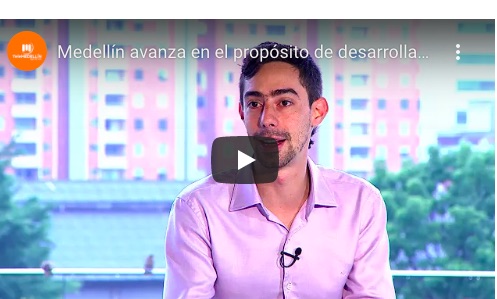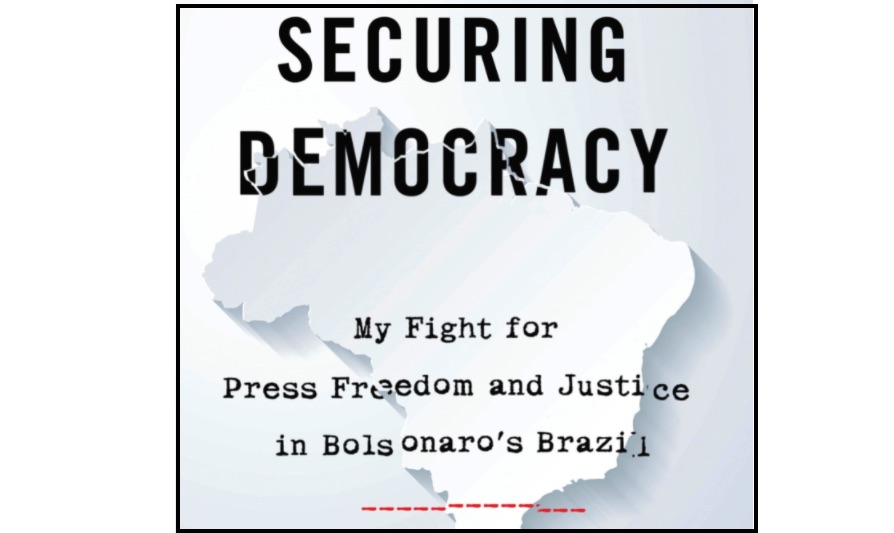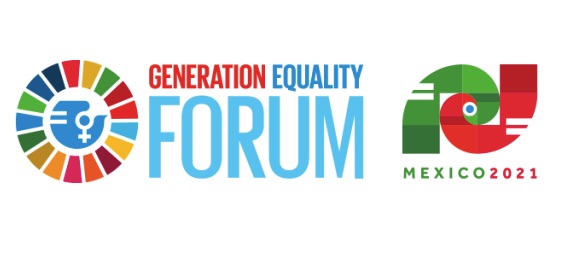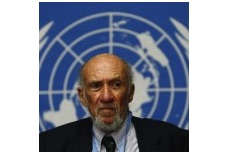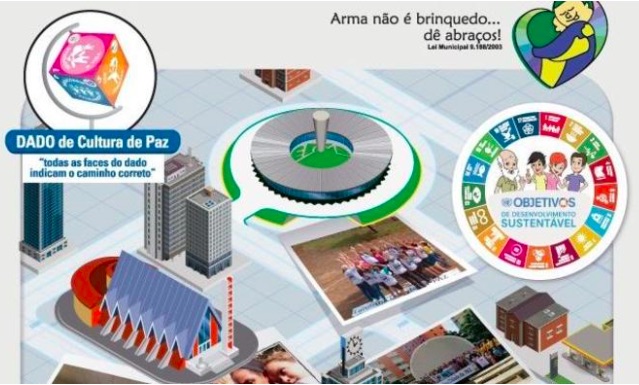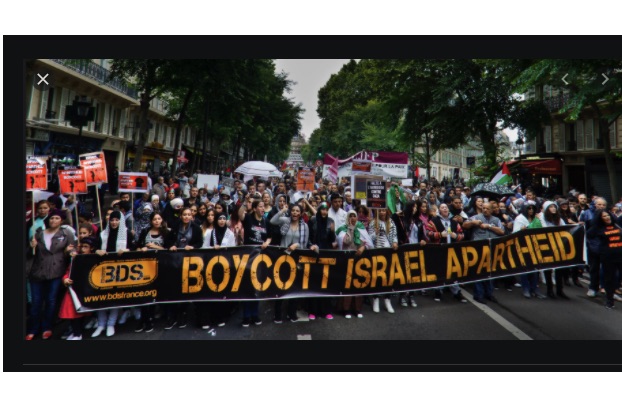FREE FLOW OF INFORMATION
A press release from the National Academies of Science, Engineering and Medicine
This statement was inspired by the discussions at the 2021 Nobel Prize Summit, issued by the Steering Committee on April 29 and co-signed by Nobel Laureates and experts.

Preamble
The Nobel Prizes were created to honor advances of “the greatest benefit to humankind.” They celebrate successes that have helped build a safe, prosperous, and peaceful world, the foundation of which is scientific reason.
“Science is at the base of all the progress that lightens the burden of life and lessens its suffering.” Marie Curie (Nobel Laureate 1903 and 1911)
Science is a global common good on a quest for truth, knowledge, and innovation toward a better life. Now, humankind faces new challenges at unprecedented scale. The first Nobel Prize Summit comes amid a global pandemic, amid a crisis of inequality, amid an ecological crisis, amid a climate crisis, and amid an information crisis. These supranational crises are interlinked and threaten the enormous gains we have made in human progress. It is particularly concerning that the parts of the world projected to experience many of the compounding negative effects from global changes are also home to many of the world’s poorest communities, and to indigenous peoples. The summit also comes amid unprecedented urbanization rates and on the cusp of technological disruption from digitalization, artificial intelligence, ubiquitous sensing and biotechnology and nanotechnology that may transform all aspects of our lives in coming decades.
“We have never had to deal with problems of the scale facing today’s globally interconnected society. No one knows for sure what will work, so it is important to build a system that can evolve and adapt rapidly.” Elinor Ostrom (Nobel Laureate 2009)
The summit has been convened to promote a transformation to global sustainability for human prosperity and equity. Time is the natural resource in shortest supply. The next decade is crucial: Global greenhouse gas emissions need to be cut by half and destruction of nature halted and reversed. An essential foundation for this transformation is to address destabilizing inequalities in the world. Without transformational action this decade, humanity is taking colossal risks with our common future. Societies risk large-scale, irreversible changes to Earth’s biosphere and our lives as part of it.
“A new type of thinking is essential if mankind is to survive and move toward higher levels.” Albert Einstein (Nobel Laureate 1921)
We need to reinvent our relationship with planet Earth. The future of all life on this planet, humans and our societies included, requires us to become effective stewards of the global commons — the climate, ice, land, ocean, freshwater, forests, soils, and rich diversity of life that regulate the state of the planet, and combine to create a unique and harmonious life-support system. There is now an existential need to build economies and societies that support Earth system harmony rather than disrupt it.
OUR PLANET
“It seems appropriate to assign the term ‘Anthropocene’ to the present.” Paul Crutzen (Nobel Laureate 1995)
Geologists call the last 12,000 years the Holocene epoch. A remarkable feature of this period has been relative Earth-system stability. But the stability of the Holocene is behind us now. Human societies are now the prime driver of change in Earth’s living sphere — the biosphere. The fate of the biosphere and human societies embedded within it is now deeply intertwined and evolving together. Earth has entered a new geological epoch, the Anthropocene. Evidence points to the 1950s as the onset of the Anthropocene — a single human lifetime ago. The Anthropocene epoch is more likely to be characterized by speed, scale, and shock at global levels.
Planetary health
The health of nature, our planet, and people is tightly connected. Pandemic risk is one of many global health risks in the Anthropocene. The risks of pandemics are now greater due to destruction of natural habitats, highly networked societies, and misinformation.
The COVID-19 pandemic is the greatest global shock since the Second World War. It has caused immense suffering and hardship. The scientific response in the face of catastrophe, from detection to vaccine development, has been robust and effective. There is much to applaud. However, there have been clear failings. The poorest and most marginalized in societies remain the most vulnerable. The scale of this catastrophe could have been greatly reduced through preventive measures, greater openness, early detection systems, and faster emergency responses.
Reducing risk of zoonotic disease like COVID-19 requires a multi-pronged approach recognizing “one health” — the intimate connections between human health and the health of other animals and the environment. Rapid urbanization, agricultural intensification, overexploitation, and habitat loss of large wildlife all promote the abundance of small mammals, such as rodents. Additionally, these land-use changes lead animals to shift their activities from natural ecosystems to farmlands, urban parks, and other human-dominated areas, greatly increasing contact with people and the risk of disease transmission.
The global commons
Global heating and habitat loss amount to nothing less than a vast and uncontrolled experiment on Earth’s life-support system. Multiple lines of evidence now show that, for the first time in our existence, our actions are destabilizing critical parts of the Earth system that determine the state of the planet.
For 3 million years, global mean temperature increases have not exceeded 2°C of global warming, yet that is what is in prospect within this century. We are on a path that has taken us to 1.2°C warming so far — the warmest temperature on Earth since we left the last ice age some 20,000 years ago, and which will take us to >3°C warming in 80 years.
At the same time, we are losing Earth resilience, having transformed half of Earth’s land outside of the ice sheets, largely through farming expansion. Of an estimated 8 million species on Earth, about 1 million are under threat. Since the 1970s, there has been an estimated 68% decline in the populations of vertebrate species.
Inequality
“The only sustainable prosperity is shared prosperity.” Joseph Stiglitz (Nobel Laureate 2001)
While all in societies contribute to economic growth, the wealthy in most societies disproportionately take the largest share of this growing wealth. This trend has become more pronounced in recent decades. In highly unequal societies, with wide disparities in areas such as health care and education, the poorest are more likely to remain trapped in poverty across several generations.
More equal societies tend to score highly on metrics of well-being and happiness. Reducing inequality raises social capital. There is a greater sense of community and more trust in government. These factors make it easier to make collective, long-term decisions. Humanity’s future depends on the ability to make long-term, collective decisions to navigate the Anthropocene.
The COVID-19 pandemic, the largest economic calamity since the Great Depression, is expected to worsen inequality at a moment when inequality is having a clear destabilizing political impact in many countries. Climate change is expected to further exacerbate inequality. Already, the poorest, often living in vulnerable communities, are hit hardest by the impacts of climate, and live with the damaging health impacts of energy systems, for example air pollution. Furthermore, although urbanization has brought many societal benefits, it is also exacerbating existing, and creating new, inequities.
It is an inescapable conclusion that inequality and global sustainability challenges are deeply linked. Reducing inequality will positively impact collective decision-making.
(continued in right column)
Where in the world can we find good leadership today?
(continued from left column)
Technology
The accelerating technological revolution — including information technology, artificial intelligence, and synthetic biology — will impact inequality, jobs, and entire economies, with disruptive consequences. On aggregate, technological advancements so far have accelerated us down the path toward destabilizing the planet. Without guidance, technological evolution is unlikely to lead to transformations toward sustainability. It will be critical to guide the technological revolution deliberately and strategically in the coming decades to support societal goals.
Acknowledging urgency and embracing complexity
The future habitability of Earth for human societies depends on the collective actions humanity takes now. There is rising evidence that this is a decisive decade (2020-2030). Loss of nature must be stopped and deep inequality counteracted. Global emissions of greenhouse gases need to be cut by half in the decade of 2021-2030. This alone requires collective governance of the global commons — all the living and non-living systems on Earth that societies use but that also regulate the state of the planet — for the sake of all people in the future.
On top of the urgency, we must embrace complexity. Humanity faces rising network risks and cascading risks as human and technological networks grow. The 2020/2021 pandemic was a health shock that quickly cascaded into economic shocks. We must recognize that surprise is the new normal and manage for complexity and emergent behavior.
OUR FUTURE
A decade of action
Time is running out to prevent irreversible changes. Ice sheets are approaching tipping points — parts of the Antarctic ice sheet may have already crossed irreversible tipping points. The circulation of heat in the North Atlantic is unequivocally slowing down due to accelerated ice melt. This may further affect monsoons and the stability of major parts of Antarctica. Rainforests, permafrost, and coral reefs are also approaching tipping points. The remaining carbon budget for a 67% probability of not exceeding 1.5°C global warming will be exhausted before 2030. At the same time, every week until 2050, the urban population will increase by about 1.3 million, requiring new buildings and roads, water and sanitation facilities, and energy and transport systems. The construction and operation of these infrastructure projects will be energy and emissions intensive unless major changes are made in how they are designed and implemented.
In 2021, major summits will generate political and societal momentum for action on climate, biodiversity, food systems, desertification, and the ocean. In 2022, the Stockholm+50 event marks the 50th anniversary of the first Earth Summit. This is an important opportunity to reflect on progress to meet the United Nations Sustainable Development Goals (SDGs), due to be completed by 2030. Yet a disconnect exists between the urgency indicated by the empirical evidence and the response from electoral politics: The world is turning too slowly.
Planetary stewardship
“We must break down the walls that have previously kept science and the public apart and that have encouraged distrust and ignorance to spread unchecked. If anything prevents human beings from rising to the current challenge, it will be these barriers.” Jennifer Doudna (Nobel Laureate 2020)
Effective planetary stewardship requires updating our Holocene mindset. We must act on the urgency, the scale, and the interconnectivity between us and our home, planet Earth. More than anything, planetary stewardship will be facilitated by enhancing social capital — building trust within societies and between societies.
Is a new worldview possible? 193 nations have adopted the SDGs. The global pandemic has contributed to a broader recognition of global interconnectivity, fragility, and risk. Where they possess the economic power to do so, more people are increasingly making more sustainable choices regarding transportation, consumption, and energy. They are often ahead of their governments. And increasingly, the sustainable options, for example solar and wind power, are similar in price to fossil fuel alternatives or cheaper — and getting cheaper.
The question at a global systems level today is not whether humanity will transition away from fossil fuels. The question is: Will we do it fast enough? Solutions, from electric mobility to zero-carbon energy carriers and sustainable food systems, are today often following exponential curves of advancement and adoption. How do we lock this in? The following seven proposals provide a foundation for effective planetary stewardship.
* POLICY: Complement GDP as a metric of economic success with measures of true well-being of people and nature. Recognize that increasing disparities between rich and poor feed resentment and distrust, undermining the social contract necessary for difficult, long-term collective decision-making. Recognize that the deteriorating resilience of ecosystems undermines the future of humanity on Earth.
* MISSION-DRIVEN INNOVATION: Economic dynamism is needed for rapid transformation. Governments have been at the forefront of funding transformational innovation in the last 100 years. The scale of today’s challenges will require large-scale collaboration between researchers, government, and business — with a focus on global sustainability.
* EDUCATION: Education at all ages should include a strong emphasis on the nature of evidence, the scientific method, and scientific consensus to ensure future populations have the grounding necessary to drive political and economic change. Universities should embed concepts of planetary stewardship in all curricula as a matter of urgency. In a transformative, turbulent century, we should invest in life-long learning, and fact-based worldviews.
* INFORMATION TECHNOLOGY: Special interest groups and highly partisan media can amplify misinformation and accelerate its spread through social media and other digital means of communication. In this way, these technologies can be deployed to frustrate a common purpose and erode public trust. Societies must urgently act to counter the industrialization of misinformation and find ways to enhance global communication systems in the service of sustainable futures
* FINANCE AND BUSINESS: Investors and companies must adopt principles of recirculation and regeneration of materials and apply science-based targets for all global commons and essential ecosystem services. Economic, environmental, and social externalities should be fairly priced
* SCIENTIFIC COLLABORATION: Greater investment is needed in international networks of scientific institutions to allow sustained collaboration on interdisciplinary science for global sustainability as well as transdisciplinary science that integrates diverse knowledge systems, including local, indigenous, and traditional knowledge
* KNOWLEDGE: The pandemic has demonstrated the value of basic research to policymakers and the public. Commitment to sustained investment in basic research is essential. In addition, we must develop new business models for the free sharing of all scientific knowledge.
CONCLUSION
Global sustainability offers the only viable path to human safety, equity, health, and progress. Humanity is waking up late to the challenges and opportunities of active planetary stewardship. But we are waking up. Long-term, scientifically based decision-making is always at a disadvantage in the contest with the needs of the present. Politicians and scientists must work together to bridge the divide between expert evidence, short-term politics, and the survival of all life on this planet in the Anthropocene epoch. The long-term potential of humanity depends upon our ability today to value our common future. Ultimately, this means valuing the resilience of societies and the resilience of Earth’s biosphere.
SIGNATURES
Signatures are listed at the end of the press release.

